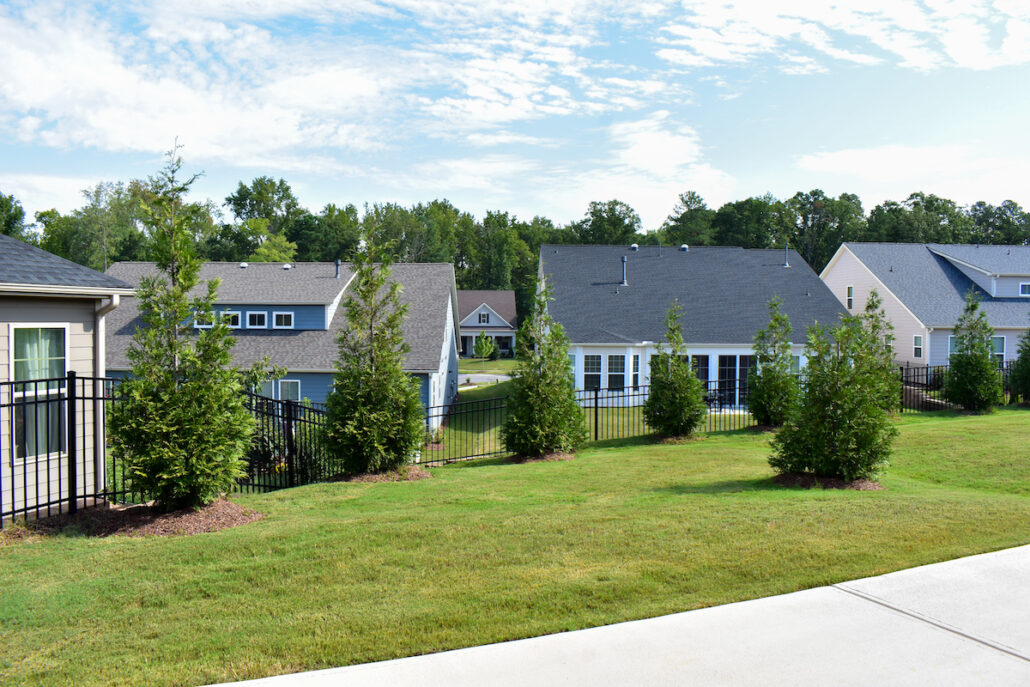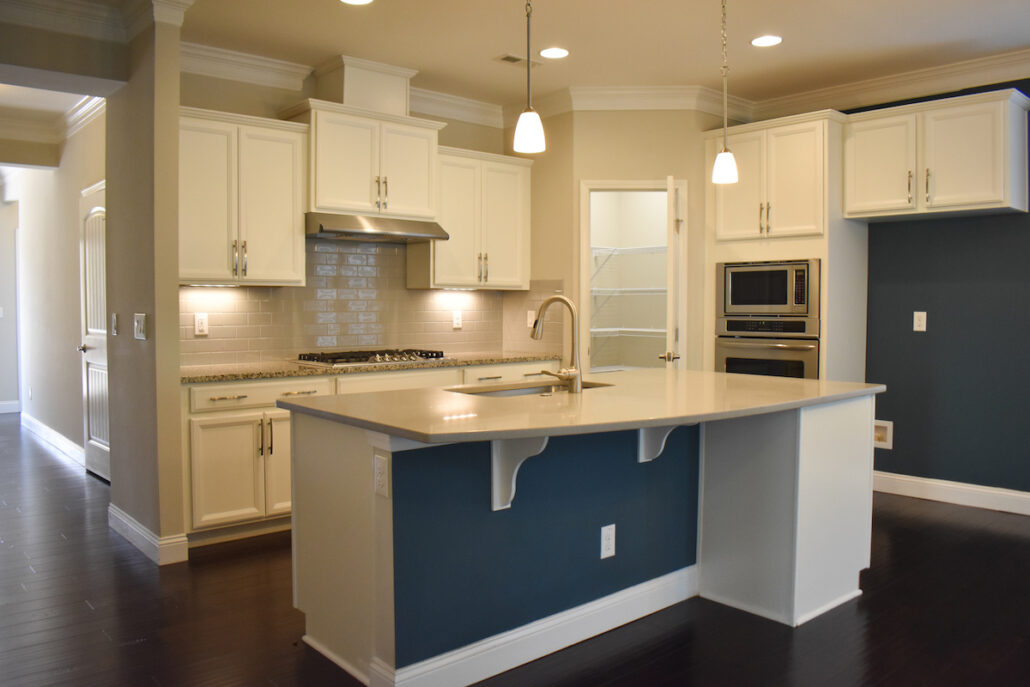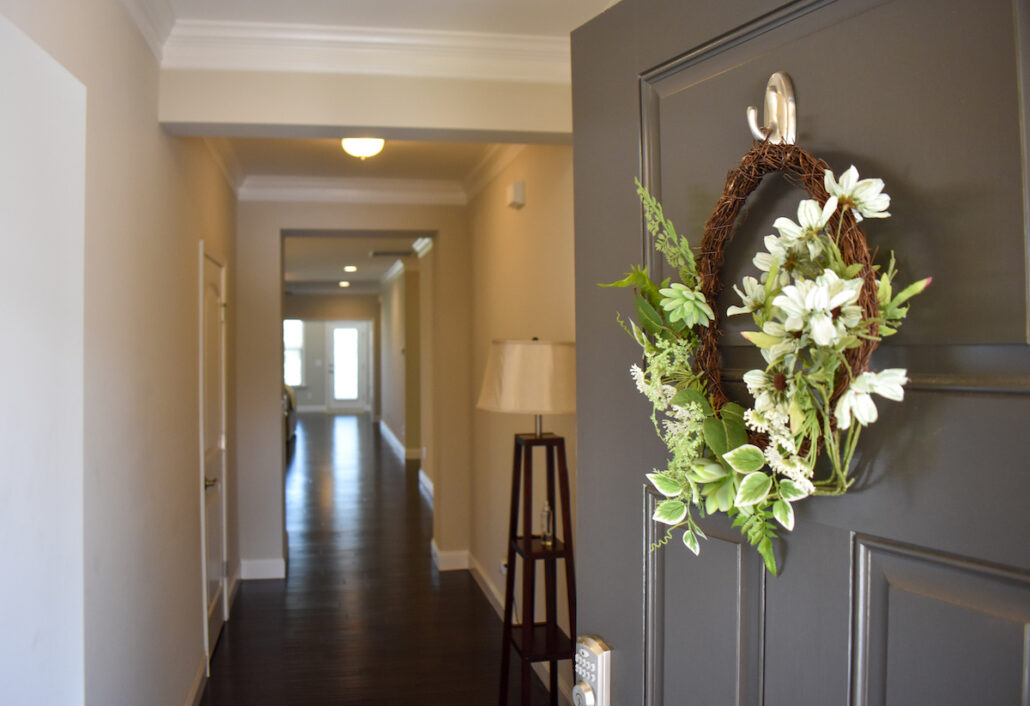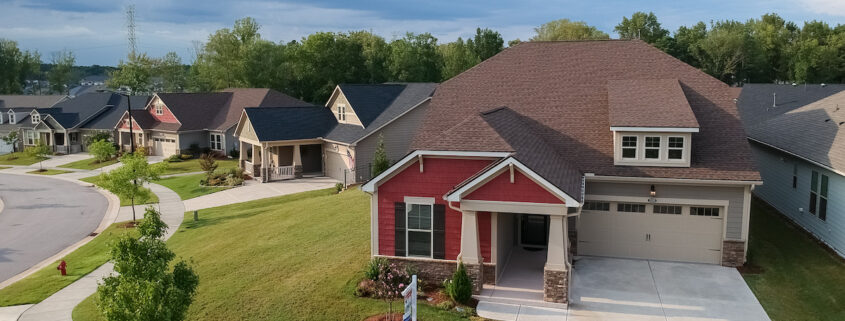Money Matters: Buying Your First Home
Cary, NC — Finding the right first home starts with a price range and a short list of desirable neighborhoods. But you may need to consider many other factors before investing in what may be your biggest asset.
Getting Ready for the Big Investment
For many people, buying their first home represents the biggest financial commitment they’ll ever make. Before making such a big decision, you should consider carefully a variety of factors and whether home ownership is right for you.
The best advice is to look at buying a home first as a lifestyle investment, and only secondly as a financial investment. Once you’ve decided to buy, you’ll want to keep in mind some practical guidelines.
First, determine how much house you can afford. Mortgage borrowing guidelines specify that housing costs should not exceed 28% of gross income, and total debt payments should not exceed 36% of gross income.
There’s also the down payment to consider, as well as points and closing costs. You’ll also want to get an idea of monthly operating costs.
Surrounding Home Values & Other Factors

Remember that much of a home’s value is derived from the values of those surrounding it. Consider the qualities that will be attractive to future buyers as well as those attractive to you.
Home ownership is the cornerstone of the American Dream. But before you start looking, consider a number of things.
Over time, buying a home can be a good way to build equity. But as recent history has shown, house prices can go down as well as up. Like many other investments, real estate prices can fluctuate considerably.
If you aren’t ready to settle down in one spot for a few years, you probably should defer buying a home until you are. If you are ready to take the plunge, you’ll need to determine how much you can spend and where you want to live.
How Much House Can You Afford?

Most people, especially first-time buyers, must take out a mortgage to buy a home. To qualify for a mortgage, the borrower generally needs to meet two ratio requirements that are industry standards: the housing expense ratio and the total obligations ratio.
The housing expense ratio compares basic monthly housing costs to the buyer’s gross monthly income (before taxes and other deductions). Basic costs include monthly mortgage, insurance, and property taxes.
Income includes any steady cash flow, including salary, self-employment income, pensions, child support, or alimony payments. For a conventional loan, your monthly housing cost should not exceed 28% of your monthly gross income.
The total obligations ratio is the percentage of income required to service all your total monthly payments. Monthly payments on student loans, installment loans, and credit card balances older than 10 months are added to basic housing costs and then divided by gross income.
Typical Home Buying Costs
- Down Payment: 0%-20% of purchase price
- Home Inspection: $200-$500
- Points: $1,000 and up for 1%-3%
- Closing Costs: 3%-8% of purchase price
Your total monthly debt payments, including basic housing costs, should not exceed 36%.
In addition to qualifying for a mortgage, you will likely need a down payment. Down payment requirements vary from more than 20% to as low as 0% for some Veterans Administration (VA) loans.
Down payments of 20% or more generally buy a better rate and exempt you from buying private mortgage insurance.
Taxes & Closing Costs

Closing costs vary considerably, but typically add between 3% and 8% to your purchase price. Such costs include home inspection costs, loan origination fees, up-front “points” (prepaid interest), application fees, appraisal fee, survey, title search and title insurance, first month’s homeowner’s insurance, recording fees, and attorney’s fees.
In many locales, transfer taxes are assessed. Finally, adjustments for heating oil or property taxes already paid by the sellers will be included in your final costs.
Operating Costs
In addition to mortgage payments, there are other costs associated with home ownership. Home association fees, utilities, heat, property taxes, repairs, insurance, services such as trash or snow removal, landscaping, assessments, and replacement of appliances are the major costs incurred.
Check the actual expenses of the previous owners and make sure you understand how much you are willing and able to spend on such items.
Once you’ve determined a price range and location, you’re ready to look at individual homes. Remember that much of a home’s value is derived from the values of those surrounding it.
Since the average residency in a house is seven years, consider the qualities that will be attractive to future buyers as well as those attractive to you. The more research you do today, the better your decision will look in the years to come.
Story courtesy of Briant Sikorski, a Wealth Advisor at Stratos Wealth Partners. Read more Money Matters on CaryCitizen. Photos by Ashley Kairis.
All the Cary news every day since 2009. Subscribe by email.



